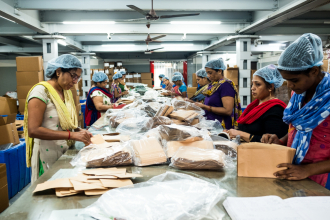The gendered effects of climate change: Evidence from droughts in rural India
In contrast to previous research, which suggests that women's employment rises during negative household income shocks in low-income economies, the findings in this study, reveal that, despite an increased likelihood of seeking work due to aggregate income shocks, women's employment may not rise if their labor mobility is constrained. Moreover, the impact of climatic shocks may be enduring. The cross-sectional analysis indicates that gender disparities in non-farm employment and migration are more pronounced in villages exposed to higher risks from rainfall variability.



